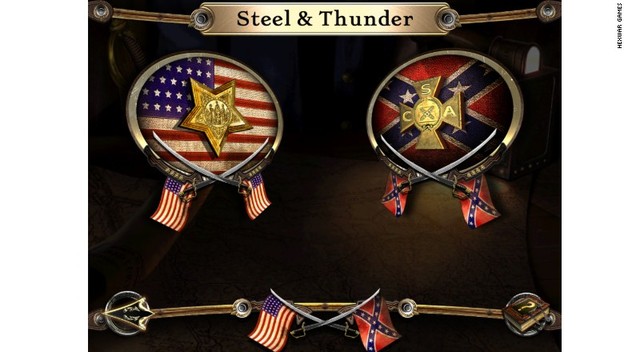Last week, we reported on Apple’s move to pull any and all games from their app store that contained images of the Confederate flag. These games can only go back on the store if all imagery of the flag is removed first. This was, of course, in response to the horrible shooting at a black church last month by a racially-motivated white assailant. In the days that have followed, attacks on black churches have continued, primarily in the South. It seems that certain individuals are desperate to start a race war. More on that later on.
As of now, there’s been no update or reversal of policy issued by Apple, meaning developers of historically-accurate sims and other games that require the Confederate flag to be present are under a large amount of pressure to either give in to Apple’s request or keep their games off of one of the largest mobile gaming storefronts in the world. As anyone who knows anything about programming is aware, going in, replacing art, and manipulating lines of code can be a time-consuming, problematic process. These developers have already lost money due to their games being off the market for several days, and stand to lose even more as they figure out ways to work around the issue.
That Apple hasn’t gone back on the policy, or at least reconsidered aspects of it, is a troubling sign of things to come. Their refusal to at least acknowledge the issues such a policy raises shows that games sold via iTunes can come under attack from any direction. What’s worse, developers are virtually defenseless. Regardless of your views on the Confederate flag, this information should be of concern to you. Entertainment and art are under the crosshairs when such polices are allowed to stand with little to no objection.
Apple’s reaction to the tragic shooting is reactionary, and done with little to no thought or concern for all the people it affects. How many developers (small and large alike) are losing money on a daily basis? How many fans and players are being affected? While Apple may not be feeling the financial strain, I can almost guarantee that several others out there are. And what if we take money out of the equation? Is their policy still wrong? Yes, it is. By putting this policy into place, Apple is trivializing games and their place in both art and culture. This shouldn’t come as much of a surprise – Steve Jobs was often openly hostile towards video games, and that sentiment still continues within the walls of Apple to this day.

Their actions seem radically unfair when you take into consideration that games are the only form of art being targeted by the policy. Films, television shows, novels, comics… nothing else is being removed from iTunes except games. I don’t know about you, but that sounds like a focused offensive made against a specific artistic medium for purely reactionary reasons that are vague and unclear at best. It’s lame, and does nothing but upset both their consumers and affiliates who (by the way) bring in tons of money for the huge company. Apple seems to be forgetting that games are some of the most-purchased apps for mobile platforms.
Ultimately, here’s the problem with removing images of a flag from media – art is only a mirror, not the object being reflected. Most of the apps that reference the flag are historical sims and the like. They neither condone nor condemn the flag and all that it stands for, they simply put history on display. To demand that your favorite type of art fall in line with your personal political beliefs, be they issues with sexism, violence, or in this case racism, automatically means the work in question is no longer art… it’s propaganda. On top of which, removing images of the Confederate flag doesn’t actually accomplish anything. Racism is a deeply-ingrained aspect of our society here in America, and burying it in the dirt doesn’t mean we’ve moved past it.
If we decide as a people to remove the flag in real life, that would be a good first step in opening up a dialog with ourselves. But to do something as silly and backwards as removing images of the flag from a specific type of media means that we’ve missed the point. The horrible meaning and legacy of hatred behind the flag is staring us in the face here in reality, not behind a glass screen.
